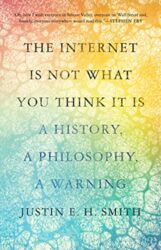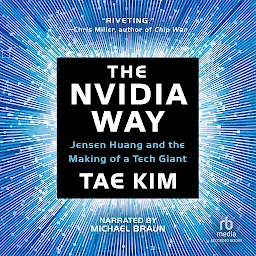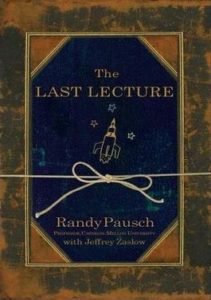Score: 1 star out of 5.
It’s hard to not write a fascinating book on the Philosophy of the Internet. The Internet is a recent phenomenon that has pervaded all aspects of our lives at lightning speed. And just like social and political policies, philosophy is finding it hard to keep up. We just haven’t had the time to step back and process how what is happening around us could be understood at a metaphysical or phenomenological level. This is the current wild, wild west of the intellectual world. So, if you’re a smart, observant, intuitive cookie, a book on the Philosophy of the Internet is a given to be a hit. You’re going to be a trailblazer.
Unfortunately, Justin E. H. Smith, professor of history and philosophy of science at the Université Paris Cité, fails at this task miserably. I’m still baffled at how he managed it. Especially when he started off so well: “We are living in a crisis moment of history, in the true sense of “crisis”: things might get better eventually, but they will never be the same… The principle charges against the internet… have to do with the ways in which it has limited our potential and our capacity for thriving, the ways in which it has distorted our nature and fettered us… as such the internet is anti-human. If we could put it on trial, its crime would be a crime against humanity.”
Well, the suspense has been built! This simply has to be a great read! One would think…
Professor Smith, however, is one of those professors you may have had the amusement as well as annoyance to have come across in your university days as a student. You see a fascinating topic. Great first slide. Great introduction. After 10 minutes, though, you start to shuffle in your chair awkwardly wondering if you’re the only one in the room questioning the validity of what is being presented to you before your eyes. After 20 minutes you start to look around the room to see if others are starting to feel any annoyance at all. After 30 minutes, you have your face in your hands wondering how on earth this person managed to get a high position at a university.
Smith tries to build a philosophy of the Internet but he does it poorly. In a nutshell, he thinks that to create a Philosophy of the Internet he just has to show that the phenomena that we experience with the internet, such as communication and interconnectedness, have existed in one way or another since the dawn of time:
“[The Internet] does not represent a radical rupture with everything that came before, either in human history or in the vastly longer history of nature that precedes the first appearance of our species… [it is] more like an outgrowth latent from the beginning in what we have always done.”
And this is how he proceeds for the rest of the book:
“[T]he sperm whale’s clicks, the elephant’s vibrations, the lima beans plant’s rhizobacterial emissions… are all varieties of “wifi” too.”
Pages and pages of analogies from nature follow:
“It was just as common from antiquity through the modern period to envision nature… as a wired or connected network, that is, a proper web… Such a system is instanced paradigmatically in what may be thought of as the original web, the one woven by the spider”
From whales’ “clicks” to spiders’ webs in nature we’re meant to build a Philosophy of the Internet? What on earth are you talking about, here, sir?
I’d stop and move on but these quotes are just too good to pass up:
“The important thing to register for now is that the spider’s web is a web in at least some of the same respects that the World Wide Web is a web: it facilitates reports, to a cognizing or sentient being that occupies one of its nodes, about what is going on at other of it nodes”.
The “vegetal world” gets a mention, too, of course. Field grass, trees – all these have “underground network of roots, whose exchanges can be tracked to a technique known as “quantum dot tagging””.
We’re about one-third of the way through the book now and this is about the moment that I’m starting to look around the lecture room to see if anybody else is noticing these fickle attempts at intellectualism. This is something worthy of a high school philosophy paper.
From analogies in nature, Smith then proceeds to analogies in the history of thought:
“In the history of western philosophy, in fact, one of the most enduring ways of conceiving the connectedness of all beings… has been through the idea of a “world soul”… One might dare to say, and I am in fact saying, that we always knew the internet was possible. Its appearance in the most recent era is only the latest twist in a much longer history of reflection on the connectedness and unity of all things.”
Absolute gold. The best quote out of these sections is this one:
“The very development of the binary calculus that… marks the true beginning of the history of information science, was itself a direct borrowing from a broadly neo-Platonic mystical tradition of contemplating the relationship between being and non-being: where the former might be represented by “1” and the latter by “0.”
The fact that we have 1s and 0s in electronics can be traced back to neo-Platonic mystical traditions? This guy has got to be joking. We’re two-thirds into this book and now I’m not only wondering if anybody else sees through this junk in this lecture theatre but I’m also starting to wonder whether I’m not in one of Franz Kafka’s novels. This guy is a professor at a prestigious university in Paris. It is common knowledge that Kafka was known to laugh uncontrollably when reading his work aloud to friends. By this stage I’m laughing aloud in a cafe myself at what I’m reading.
When Professor Smith finally finishes showing how ideas inherent in the internet originate in lima beans and Augustinian “Confessions”, he ends abruptly and with satisfaction. Not much more is given to round out his treatise. The idea of showing that the Internet “is more like an outgrowth latent from the beginning” and hence not as radical as we may think isn’t given any force. There’s not much there to reflect on – it’s nothing groundbreaking.
Yes, I’m still looking around the lecture theatre to discern whether I’m in Kafka’s Trial or not. People around me are clapping their gratitude. I have no idea what is happening. When the clapping subsides, Smith adds one more utterance to his work. And then everything becomes crystal clear to me:
“I am writing, from New York City, during the coronavirus quarantine in the spring of the year 2020.”
Ah! There you have it! A work conceived during a lockdown period. Now this book makes perfect sense to me!
We’ve all been there, haven’t we? We all went a bit crazy and insane when we were sent to our rooms by our benevolent government during the pandemic during which time we all conceived of nutty philosophical ideas that were supposed to save the world. The difference is that when we finally left our confines and lucidity hit us like a fast-moving bus, we retracted our incoherent ideas. Smith, unfortunately, did not do this.
To be informed when new content like this is posted, subscribe to the mailing list (or subscribe to my YouTube channel!):



